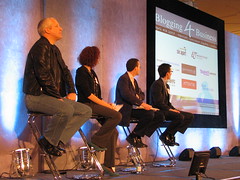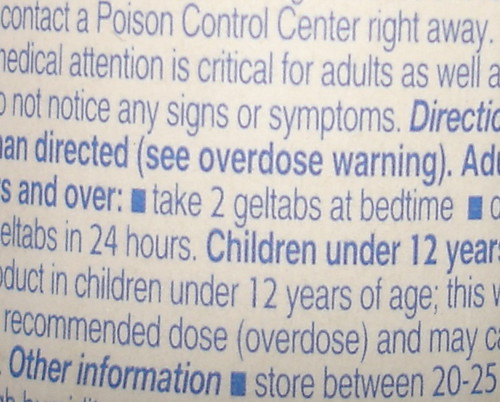
I've just read this new post on Guy Kawasaki's Blog titled:
"Are You an Egomaniac? Ten Questions with Steven Smith". Steven had written a book he co-authored with David Marcum called
egonomics: What Makes Ego Our Greatest Asset (or Most Expensive Liability). For those of you who have been reading my Blog you would know that I'm a big fan of Guy's work and blog.
To start, let's play a little with related definitions:
Confidence: "confidence that doesn’t have to exert itself to “prove” it’s confidence" (Steven Smith)
Humility: "modest opinion or estimate of one's own importance." (
Dictionary.com)
Ambition: "an earnest desire for some type of achievement or distinction, as power, honor, fame, or wealth, and the willingness to strive for its attainment" (
Dictionary.com)
Ego: "an inflated feeling of pride in your superiority to others" (WordNet)
Here's my thinking on this:
My definition of ego would be: "Overgrown self sense of one's superiority over others". In other words, regardless of whether true or not, helpful or not, you think you're better and thus you shouldn't care.
It begins at going into broadcast mode: one starts to broadcast their opinions on literally everything, whether they know something about it, vaguely, or none. This is the first killing: when one is broadcasting, they are not listening. Not listening to customers, not listening to the market, (and worse, IMHO), not listening to your staff.
By not listening to the outside world, the market data is non-existent, or irrelevant, so the product and technology might be irrelevant too. Existing customers and potential prospects will not be impressed by this relationship and you'll have a hard time selling. The good news, there may be other people in the organization that might actually be more receptive to the market and be able to provide that balance back.
By not listening to your staff you immediately invalidate any chance of correcting the flawed scheme of creating product in vacuum. But there's a far higher price tag on becoming oblivious the team's input:
IT WILL DRIVE THE TEAM AWAY. What made them join a high risk, high toll exercise in the first place? exciting workplace, innovation, creativity, being able to participate and contribute to the decision making process. They did not join for the non-existent 401k!
Another way to look at it is that the true capital of startups comes from the synergies between members of the team. How come? imagine every team member would be raising their hands as their motivation is higher. The overall covered ground resembles the knowledge and innovation capital. Healthy startups have motivated employees whose synergies cover a lot of ground. The alternative is having de-motivated spearheads who cover almost no ground and the innovation is weak. in big organizations many spearheads may still cover a lot of ground but in a startup it is immediately visible that a lot of ground is uncovered.
(Quote from the
post:)
Question: What should you do if you work for an egotist?
Answer: Run to the nearest exit and find somewhere else to work
Allow me a quick look at an interesting
post made by Announce Mobile's CEO, Jeff Mould (the blog seems to be down but hopefully will come back): His post speaks about why should they consider a partnership request from this startup whose employees aren't productive (spending too much time on the web).
That post caught my eye: forget for a minute how would an outsider know that the other startup employees are being non-productive etc., but what's really happening here: why would employees become non-productive at a startup??? Did they join to become non-productive web addicts?
Here's my advice Jeff: this startup's management has frustrated their talented entrepreneurial people: go get them, get the talent that's been deprived and make it flourish. Go after the IP, too, if appropriate, but the main point here: there's human capital there waiting to be salvaged.
Another comment that's extremely important for me to make: "How-to become an entrepreneur" guides have the tendency of promoting the 'believe in yourself' theme, but sometimes I get the feel as I'm reading through these things that the authors are taking it a bit too far. Perhaps to the ego turf. I strongly agree that ambition is crucial in the game, humility, especially to those who you should be receptive to, is no less important.
To wrap up, here's a quote from one of the comments to Guy's post, by
Michael Sporer:"
the ones that accomplish the most, are those who can keep ego at the door. Big egos lead to closed minds; closed minds hurt organizations."
Thanks for reading, interested in your thoughts
 One, an Austrian mobile operator had launched BeeTagg's code scanning solution. Here it is from the operator's site.
One, an Austrian mobile operator had launched BeeTagg's code scanning solution. Here it is from the operator's site. Oh hoh hoh...that's gonna be a hot potato Apple, hope you're ready for some backlash.
Oh hoh hoh...that's gonna be a hot potato Apple, hope you're ready for some backlash. Scott Kirsner had a nice article in the Boston Globe (and
Scott Kirsner had a nice article in the Boston Globe (and  A while back I was facing a dilemma
A while back I was facing a dilemma 

 So I'm looking through the site and it takes me to
So I'm looking through the site and it takes me to  In recent years there had been significant advances in the solutions and technologies that provide biometric sensing solutions. The technology is now offered from vendors to OEMs to embed into laptops, security systems, law enforcement agencies etc. It also offers different methods to authenticate the user based on finger-scan, iris-scan, facial-scan, voice-scan, signature-scan and more.
In recent years there had been significant advances in the solutions and technologies that provide biometric sensing solutions. The technology is now offered from vendors to OEMs to embed into laptops, security systems, law enforcement agencies etc. It also offers different methods to authenticate the user based on finger-scan, iris-scan, facial-scan, voice-scan, signature-scan and more. According to Sydney Morning Herald,
According to Sydney Morning Herald,  I've attended
I've attended  Federer reminded me of the comics 'Iceman': He was dominant in the game; he plays perfect tennis and some think that he might be the best player in the game ever. His movements are perfect and he (almost) has no weak points. But what's amazing about him, is that he is as cool as ice, almost inhuman: plays perfect, never gets mad (well, at least not in the games I've seen), some limited reaction when winning a point, and that's it. Hell, he almost didn't seem to sweat!
Federer reminded me of the comics 'Iceman': He was dominant in the game; he plays perfect tennis and some think that he might be the best player in the game ever. His movements are perfect and he (almost) has no weak points. But what's amazing about him, is that he is as cool as ice, almost inhuman: plays perfect, never gets mad (well, at least not in the games I've seen), some limited reaction when winning a point, and that's it. Hell, he almost didn't seem to sweat! Roddic reminded me of Batman, in that he's truly one of the best players today. He's inferior (IMHO) to Federer in the after-serve game, but- he has the perfect serve, which landed him numerous aces during the game. (Let me take it back, his game closer to the net is also better than Federer's, but that's not the point). The point being, that Roddic knows he has an advantage there and he 'engages' that weapon well. But what is very different about Roddic, is that he is totally 'human': he expresses his emotions very clearly and one can easily see the correlation between the results and the emotional state, and vice versa. (A little like Batman: powerful, but human: see that human lower half of his face exposed?) Further, it seems that, perhaps because he's American, or because he is so emotionally human, or because he came to the match as an underdog, the crowd seemed to engage him more.
Roddic reminded me of Batman, in that he's truly one of the best players today. He's inferior (IMHO) to Federer in the after-serve game, but- he has the perfect serve, which landed him numerous aces during the game. (Let me take it back, his game closer to the net is also better than Federer's, but that's not the point). The point being, that Roddic knows he has an advantage there and he 'engages' that weapon well. But what is very different about Roddic, is that he is totally 'human': he expresses his emotions very clearly and one can easily see the correlation between the results and the emotional state, and vice versa. (A little like Batman: powerful, but human: see that human lower half of his face exposed?) Further, it seems that, perhaps because he's American, or because he is so emotionally human, or because he came to the match as an underdog, the crowd seemed to engage him more.

 Linkedin/amirrozenberg
Linkedin/amirrozenberg Twitter/amir_rozenberg
Twitter/amir_rozenberg GMail/Amir Rozenberg
GMail/Amir Rozenberg Facebook/Amir Rozenberg
Facebook/Amir Rozenberg

